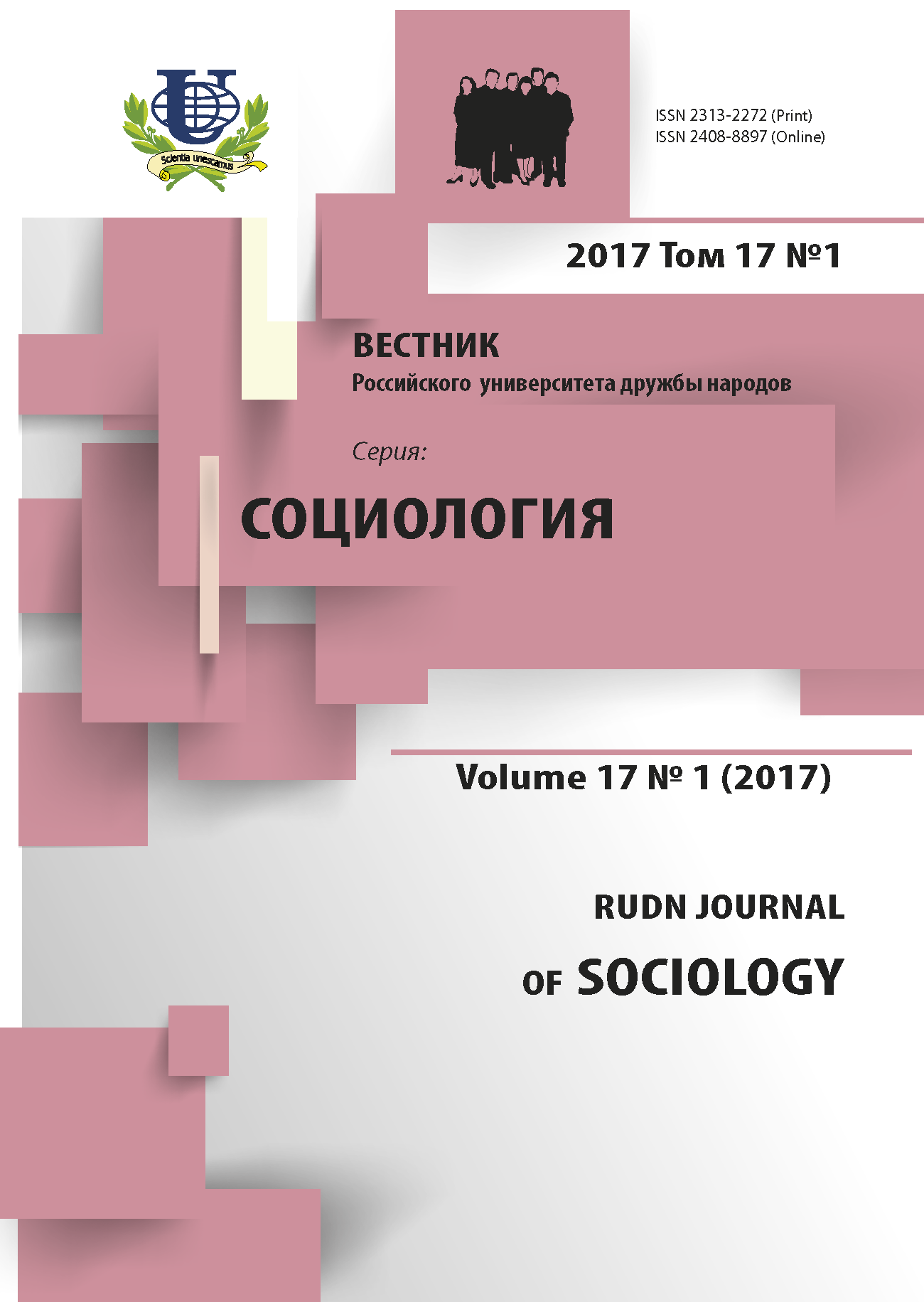Политическая экономия аграрных изменений: ключевые понятия и вопросы (на англ. яз.)
- Авторы: Бернстайн Г.1
-
Учреждения:
- Университет Лондона
- Выпуск: Том 17, № 1 (2017)
- Страницы: 7-18
- Раздел: Вопросы истории, теории и методологии
- URL: https://journals.rudn.ru/sociology/article/view/15452
- DOI: https://doi.org/10.22363/2313-2272-2017-17-1-7-18
- ID: 15452
Цитировать
Полный текст
Аннотация
Статья написана по мотивам лекций, прочитанных в Китайском сельскохозяйственном университете Пекина, а также монографии «Class Dynamics of Agrarian Change» [1]1 и недавно вышедшей статьи «Some reflections on agrarian change in China» («Некоторые соображения об аграрных трансформациях в Китае») [3]. Библиографический список статьи максимально сокращен, поскольку литература по теме крайне обширна и приведена в других работах автора [1-5]. Статья схематично описывает ключевые понятия политической экономии аграрных изменений, фокусируясь на истории становления и нынешнем состоянии капитализма; формулирует основные вопросы политической экономии аграрных изменений и возможные направления поисков ответов на них; предлагает два набора более конкретных вопросов об аграрном переходе к капитализму и об аграрных трансформациях внутри капиталистического общества (на сельских территориях, с учетом сельско-городских взаимосвязей, положения сельского хозяйства внутри «национальных» экономик, а также характера и последствий становления мировой капиталистической системы). С помощью последней группы вопросов автор рассматривает три темы: аграрные истоки капитализма, отличие земледельческих практик прошлого от сельского хозяйства капиталистического типа и судьбы крестьян в современном капиталистическом мире. По мнению автора, нельзя понять возникновение и функционирование капиталистического сельского хозяйства, не исследуя его нынешние взаимосвязи с промышленностью и с городом, а также взаимодействие локального, национального и глобального. Три названные темы порождают еще одну - причины неутихающих дискуссий об исчезновении или сохранении крестьянства, которые продолжаются и в условиях глобализации. Автор не отрицает ряда ее негативных моментов и особенно последствий, но скорее категорически не приемлет неубедительную идеологическую идеализацию «крестьянского пути», которая, по сути, отказывается анализировать процессы формирования классов на селе.
Об авторах
Генри Бернстайн
Университет Лондона
Автор, ответственный за переписку.
Email: henrybernstein@hotmail.co.uk
Сенат Хаус, ул. Малет, Лондон, WC1E 7HU, Великобритания
Список литературы
- Bernstein H. Class Dynamics of Agrarian Change. Halifax: Fernwood, 2010.
- Bernstein H. Food sovereignty via the “peasant path”. A sceptical view. Journal of Peasant Studies. 2014;41(6):1031-1063.
- Bernstein H. Some reflections on agrarian change in China. Journal of Agrarian Change. 2015;15(2):454-477.
- Bernstein H. Agriculture/industry, rural/urban, peasants/workers: some reflections on poverty, persistence and change. Poverty and Persistence of the Peasantry. J. Boltvinik, S.A. Mann (Eds.). L.: Zed Books, 2016.
- Bernstein H. Revisiting agrarian transition: reflections on long histories and current realities. Critical Perspectives in Agrarian Transition: India in the Global Debate. B. Mohanty (Ed.). L.: Routledge, 2016.
- Brenner R. The Low Countries in the transition to capitalism. Journal of Agrarian Change. 2001;1(2):169-241.
- Chayanov A.V. The Theory of Peasant Co-operatives. L.: I.B. Tauris, 1991.
- Cronon W. Nature’s Metropolis. Chicago and the Great West. N.Y.: W.W. Norton, 1991.
- Crosby A.W. Ecological Imperialism. The Biological Expansion of Europe, 900-1900. Cambridge: Cambridge University Press, 1986.
- Friedmann H. The political economy of food: A global crisis. New Left Review. 1993;197:29-57.
- Friedmann H. Feeding the empire: the pathologies of globalized agriculture. The Socialist Register 2005. L. Panitch, C. Leys (Eds.). L.: Merlin Press, 2004.
- Friedmann H., P. McMichael. Agriculture and the state system: the rise and decline of national agricultures, 1870 to the present. Sociologica Ruralis. 1989;29(2):93-117.
- Marx K. Grundrisse. Harmondsworth: Penguin Books, 1973.
- Weis T. The Global Food Economy. The Battle for the Future of Farming. L.: Zed, 2007.
- Wolf E. Peasants. Upper Saddle River NJ: Prentice Hall, 1966.
Дополнительные файлы













